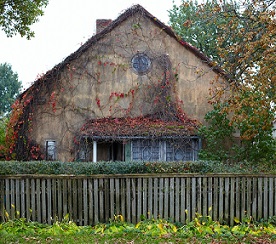Homes with Spooky Histories: Stigmatized Properties
October 31, 2016

When buying real estate, the onus is on the buyer to ask questions if something is specifically important to them rather than relying on a licensee to anticipate their needs.
Buyers may have specific areas of concern that would cause them to avoid a property that does not include cosmetic or structural issues. These intangible attributes to a property may cause it to be considered “stigmatized,” meaning it has had a traumatic or horrific circumstance occur in or near it, but does not specifically effect the appearance or function of the property itself.
Examples of this might include:
- a murder or suicide occurred in the property;
- the property was robbed or vandalized;
- criminal activity occurred on the property (i.e., drug dealing, brothel);
- reports that the property is haunted.
In Nova Scotia, sellers and their licensees are not legally required to disclose potential stigma-creating events to every interested buyer. Buyers who are particularly concerned about the potential stigmatization of a property are responsible for making their concerns known to their licensee. Buyers may also request written confirmation that certain events have not taken place on the property.
The exception to the above is, if asked about a specific stigma creating event, the seller or their licensee must disclose the information that is known to them. The current owners, however, may have limited knowledge of events that occurred prior to their ownership.
The Commission recommends that buyers be up front and honest with their licensee and discuss any issues or concerns they have involving stigmas. Buyers being proactive and communicative helps minimize the risk of purchasing a home where they are uncomfortable living.



